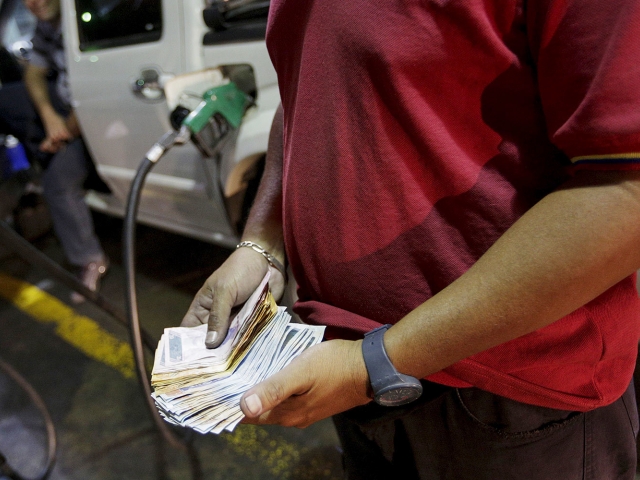
Nobody envies today's Venezuela: fuel prices have jumped, inflation can achieve 720%, and all residents of the state felt the total deficit.
Despite the fact of total rising costs, fuel in Venezuela still remains the cheapest in the world, however new prices of fuel are not the most pleasant fact for local people. It should be noted, that the cost of a litre of petrol in Venezuela has increased by 6000%.
In the picture: a gas station attendant is recounting bills.
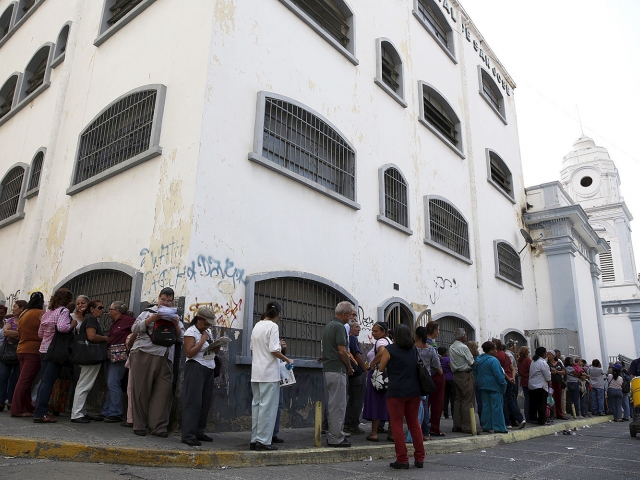
Venezuela possesses powerful oil resources, however the situation in consumer market of the country has been already being delicate for a year and a half. Long lines (in the picture) consist of hundreds of people willing to purchase goods of prime necessity — they are sold at low prices in public stores.
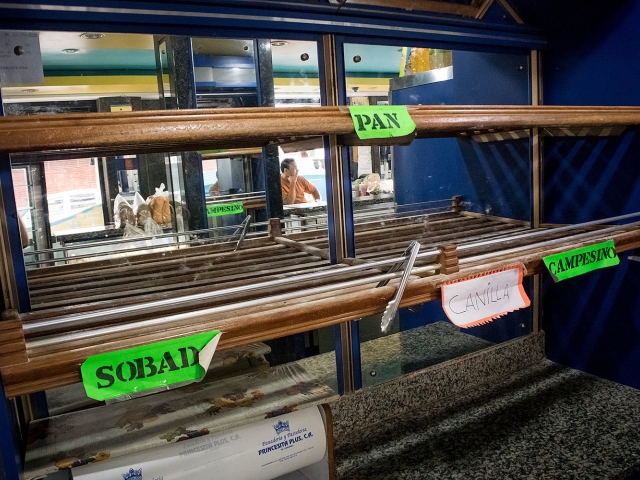
It doesn't mean, that a citizen who has standed in the line will get a necessary product — there are not enough goods for everybody. Eventually, many Venezuelans have to look at the empty shelves on their way home with nothing.
In the picture: a bakery in one of the cities of Venezuela, February 2016.
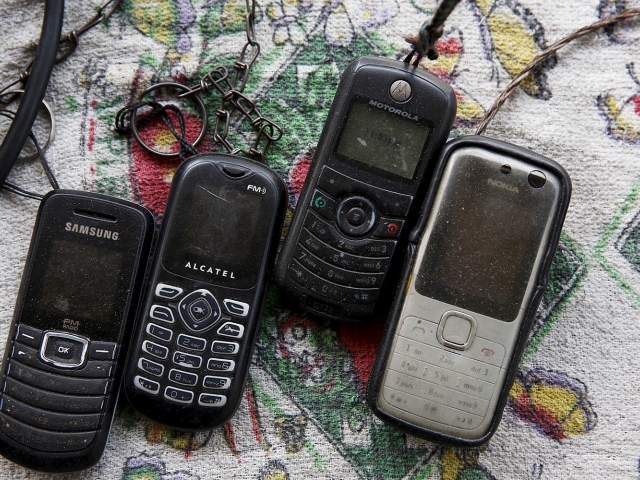
Many locals of the state have no their own mobile phones, this fact gives an opportunity for some successful Venezuelans to provide phone rental services or a service of calls for money. You can meet people repairing shoes and other products on the country's street.
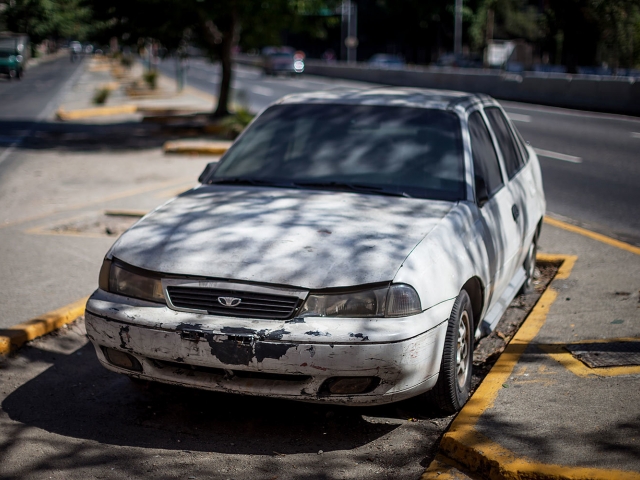
Venezuelans do not have enough money for their own vehicles. New cars cannot be obtained, it's expensive to repair old ones. That's why you can meet abandoned vehicles on the state's street, which wait till they are taken for parts.
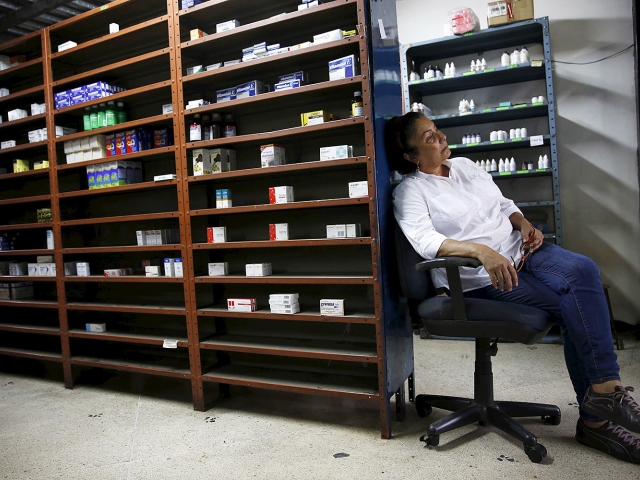
Not only goods of prime necessity are in short supply — there is also nothing for sale in pharmacies. Residents of Venezuela are wondering with a nicely irony how the country exporting oil has to save even on a toilet paper.
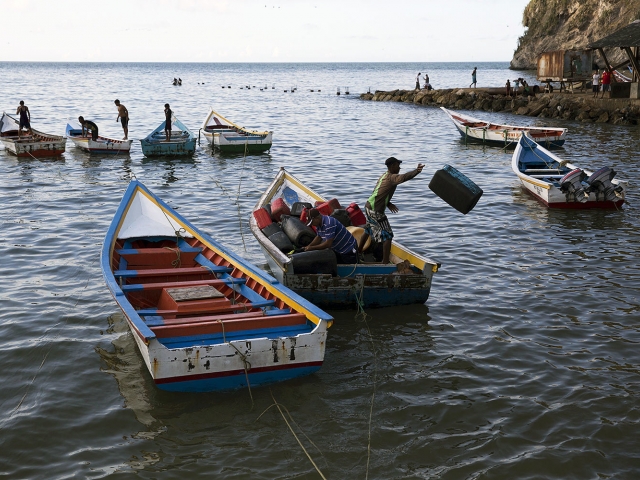
Smugglers are another headache for the state and its neighbouring countries. Many people, being able to buy cheap products, smuggle them into other countries, bringing back products that the Venezuelans lack.
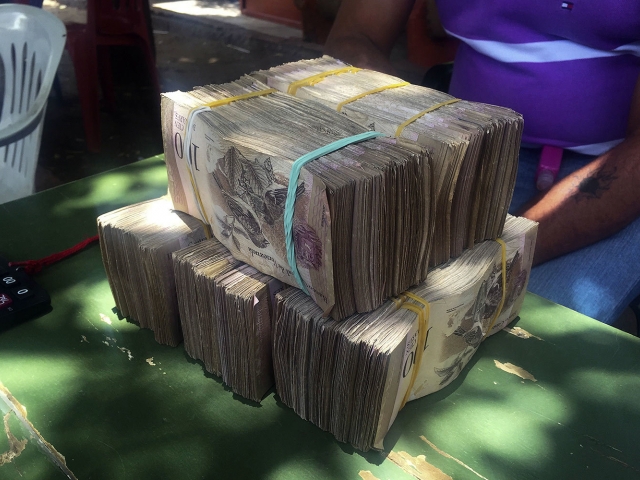
Stocks of Venezuela's national currency are also smuggled across the borders. Notes of currency are necessary both for currency traders exporting them abroad and for local residents — according to the IMF, the level of inflation in Venezuela will be 720% this year. The number of banknotes with a nominal value of 2, 50 and 100 bolivars in circulation significantly increased in 2015.
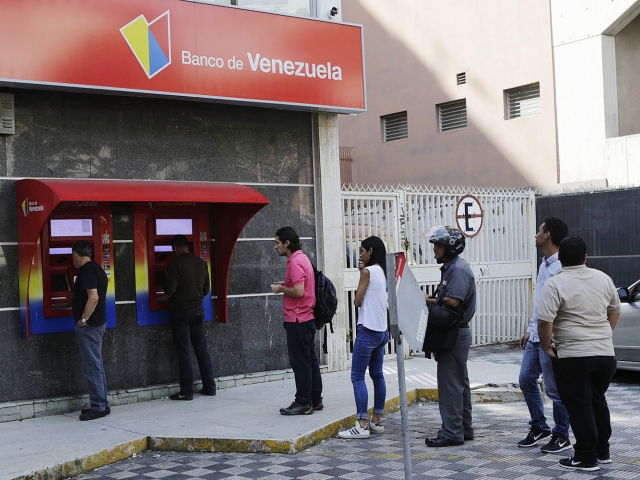
Cash withdrawal is limited in some ATMs of the country — 6000 unites of the national currency per day. Note that such amount equals to $6 on the illicit market.
The expenses of Venezuela's residents for food also increased markedly.
 Български
Български 
 Русский
Русский English
English Bahasa Indonesia
Bahasa Indonesia Bahasa Malay
Bahasa Malay ไทย
ไทย Español
Español Deutsch
Deutsch Français
Français Tiếng Việt
Tiếng Việt 中文
中文 বাংলা
বাংলা हिन्दी
हिन्दी Čeština
Čeština Українська
Українська Română
Română
